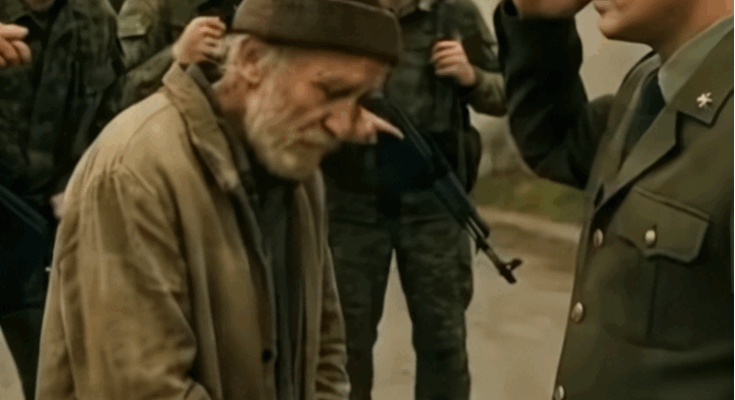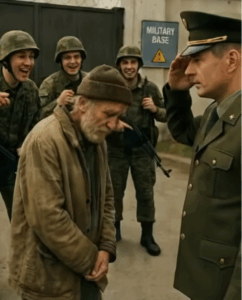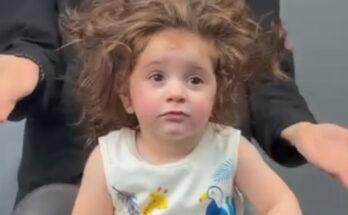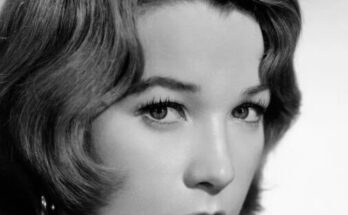It was visiting day at the base — families and regular people came to see their loved ones, look around the base, and attend the awards ceremony at noon.
The old man showed up a little after 11:30. He was thin, hunched over, wearing a worn-out jacket and old boots that looked older than the young soldiers. He used a cane to walk and held a small, folded American flag under his arm.
The guards at the gate looked at each other.
“Are you sure you’re not lost, sir?” one of them asked.
“No,” the old man said quietly. “I’m here for the ceremony.”
A young soldier behind them laughed. “He probably just wants a free lunch.”
Some nearby recruits laughed too. “Maybe he thinks this is just a museum tour.”
The old man didn’t say anything. He stood quietly, eyes focused on the field.
An officer called over a higher-up. “There’s a civilian here who says he’s here for the ceremony, but he doesn’t have permission to be on base. And he’s alone.”
“Should we ask him to leave?” another whispered.
Before anyone could decide, the door to the command building opened. A general in full uniform came out with his assistants. He saw the old man, immediately stood straight, and saluted him.
Everyone around went silent.
The general lowered his hand and spoke loudly so everyone could hear:
“Permission to speak freely, Master Sergeant?”
The old man stood up as straight as he could. “Permission granted, General.”
Everyone was shocked. The young recruits who had laughed now stood awkwardly, unsure whether to salute. The guards looked embarrassed.
“I thought you were still overseas,” the general said.
“I came back a few months ago, quietly. Didn’t want any attention,” the old man replied, looking out toward the parade field. “But I heard today was important.”
“It is,” said the general. “But having you here makes it even more special.”
He turned to a young officer. “Get him a front-row seat. And bring him some cold water.”
The officer, red-faced and nervous, quickly ran off.
The recruits who had mocked the old man now looked away. Some slipped out, others gave awkward salutes.
But the old man didn’t seem upset. He didn’t even look at them. He just walked with the general toward the field, still holding the folded flag.
A woman near the front whispered to her husband, “Who is he?”
“I don’t know,” the man said. “But the general called him ‘Master Sergeant’ like he outranks him.”
Then the crowd started whispering. People pulled out their phones, trying to find out who the old man was. But there were no clues. No phone, no medals, no social media. Just a folded flag and quiet pride.
The ceremony started, and the old man sat quietly, watching as young soldiers received medals, promotions, and recognition. When the national anthem played, he stood—slowly and with effort—clutching the folded flag to his chest.
After the applause faded, the general stepped back up to the podium.
“I want to take a moment to recognize someone who wasn’t on the schedule,” he said. “A man who means a great deal to this base, and who served this country with a kind of bravery and humility that’s hard to describe.”
He paused for a moment.
“Master Sergeant Raymond Elkins.”
A few older officers gasped in surprise. One even stood up.
The general continued, “For those who don’t know the name — and that’s our loss — Sergeant Elkins served in three wars: Korea, Vietnam, and the early Gulf deployments. He always volunteered for the hardest missions. Not because he had to, but because he wouldn’t let his men do anything he wasn’t willing to do himself.”
He looked at Elkins with deep respect. “He saved lives. He trained leaders. And he helped build the foundation of what this base stands for today.”
The audience, which had been quietly listening, suddenly broke into applause. Some people stood. Others wiped away tears.
Elkins didn’t say a word. He simply nodded, as if he hadn’t come for praise.
The general raised his hand to quiet the room again. “There’s something else. I just found out this morning — the flag he’s holding… it belonged to Corporal Jared Monroe.”
The crowd stirred. Many people recognized the name. Jared Monroe was a soldier who died in Afghanistan, saving three others by drawing enemy fire away from them. He was given the Silver Star after his death.
The general continued, “Corporal Monroe served under Sergeant Elkins. But more than that — he lived with him. He was raised by him. Jared was his grandson.”
Another wave of shock rippled through the crowd.
“After Jared died,” the general said, “Master Sergeant Elkins didn’t ask for time off. He didn’t ask for help. He asked to return to training duty. Not to grieve — but to make sure every recruit he trained would have the best chance of making it home. And since then, he’s been quietly working at smaller training centers around the country, never asking for attention, never asking for thanks.”
“Today, we’re not giving him medals or long speeches,” the general said. “We’re giving him what he’s always truly earned — our respect.”
Everyone in the crowd stood. Loud applause filled the field. Some soldiers saluted, others clapped until their hands hurt.
Elkins gave a small nod, then carefully sat back down.
After the ceremony, the general came over to him again and spoke quietly. “I owe you an apology. They should’ve known who you were.”
Elkins gave a small laugh. “They’re young. They’ll figure it out.”
“Would you like to say something?”
Elkins looked around at the people still standing nearby, curious and full of respect. Then he slowly walked with his cane to the front. The general stepped aside so he could speak.
“I’m not great at speeches,” Elkins said, his voice rough but clear. “But I’ll say this.”
He looked down at the flag in his hands.
“This flag doesn’t stand for politics. Or pride. Or power. It stands for people. Real people. Young people. Good people.”
He paused.
“I’ve seen men give up their lives so others could live. I’ve watched young boys become soldiers — and some come home changed forever. Wearing this uniform doesn’t make us better than anyone else. But it reminds us that we serve something greater than ourselves.”
He looked at the rows of young recruits, now paying close attention.
“And maybe one day, if you’re lucky, you’ll grow old. Maybe people won’t remember your name. But if you’ve lived with honor — if you’ve loved your country and cared for others — someone will remember how you stood when it mattered.”
The field went silent.
Then someone clapped. Then another. And soon the whole crowd was cheering again.
Later that day, as families left and the field emptied, Elkins sat alone on a bench. The folded flag rested in his lap. He didn’t look sad — just thoughtful.
The same young soldier who had made fun of him earlier walked up, looking nervous.
“Sir?” he said.
Elkins looked up.
“I just wanted to say I’m sorry,” the recruit said quietly. “I didn’t know.”
“You didn’t need to,” Elkins said gently. “You just needed to listen.”
The young recruit paused, then sat down next to him.
“Can I ask… why did you come today? Just for your grandson?”
Elkins shook his head. “Not just for him. I came for all of them. For every boy who thought he wasn’t strong enough. Every girl who felt like she didn’t fit in. Every soldier who ever doubted themselves. They need to know someone sees them.”
The recruit nodded slowly. “I’ll remember that.”
Elkins smiled. “Good. Then maybe I’ve done my job.”
As the sun lowered and the base grew quieter, the general came back one last time. He handed Elkins a small envelope.
“What’s this?” Elkins asked.
“An official invitation. We’re naming the new training facility after you.”
Elkins looked surprised, his eyes showing emotion.
“You don’t have to do that,” he said.
“We do,” the general replied. “We really do.”
A week later, a plaque was placed at the new training center. It read:
The Raymond Elkins Training Facility
In honor of the quiet strength behind every brave soldier.
From that day on, every recruit who walked through those gates learned his story.
And the young recruit who once mocked him? He became one of the best in his unit — and later, a training officer himself.
He kept a photo of Elkins on his desk, right next to a folded flag.
Because sometimes, the people who say the least… teach us the most.
If this story touched you, share it. Help others remember the quiet heroes.
Have you ever misjudged someone, only to realize they were far more than they seemed?




